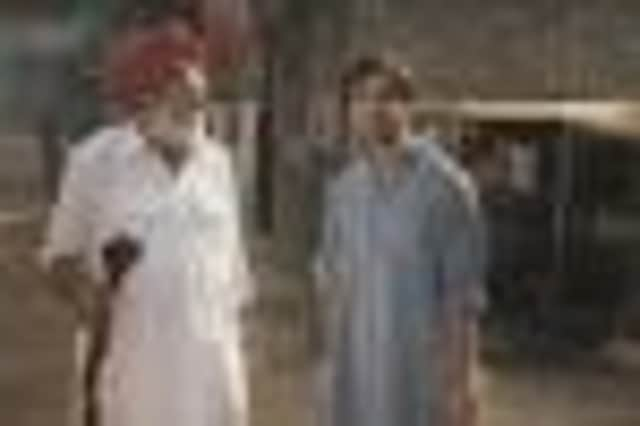Film review: Midnight’s Children


Midnight’s Children (12A)
Director: Deepa Mehta
Running time: 146 minutes
* * * *
Both are concentrated allegories of a country’s struggle for identity and self-determination, distilled by the author into the story of one person’s birth and growth.
Of course, there are differences; Midnight’s Children is one thumping magic-realist tome, while Grassic Gibbon turned the progress of Chris Guthrie and her partnerships with the land, the church and industry into a trilogy of novels. And the other difference is that I still want to see a film version of Sunset Song, but while slogging through Deepa Mehta’s adaptation of Midnight’s Children, I feared I might never see daylight again.
Advertisement
Hide AdOddly however, one of the people at fault here is executive producer Salman Rushdie, who not only spent two years adapting his own book but also does the narration. Apparently, he was coaxed into this last role by Mehta, and while there’s nothing wrong with his slow, avuncular delivery, it does add to the feeling that you are watching a shaggy dog story after a large and indigestible lunch.
Saleem Sinai is exactly as old as the new independent India, having been born at the stroke of midnight on 15 August, 1947. The son of an impoverished singer and a boozy British aristocrat, his fortunes are changed when his identity tag is deliberately swapped by a nurse as a gesture of solidarity with her rebel husband.
Instead of singing for his supper, Saleem is raised by a wealthy couple, while Shiva, the other half of the swap, gets downgraded from first class to 4th class and, without quite knowing why, has a nagging sense that an injustice has been carried out at his expense. Their destinies as they grow up remain intertwined. The adult Saleem (Satya Bhabha) has the ability to hear the voices of the Midnight’s Children, the hundreds of others born at the same hour of independence, by sniffing his nose. One of the loudest voices appears to be Shiva, who tips from resentful to ruthless after he finds advancement in the military.
Mehta has a painterly eye, giving her images a mythological beauty and tender sensuality. Gorgeous as it looks though, it is hard to love a story that is rendered with reverent faithfulness while stripping it of cinematic spark. This winter you could stay warm in the cinema by striking a match to the wooden characters, overburdened by portentous symbolism and a fatal lack of dramatic tension.
The film manages to rouse itself for a section that depicts the ferocious oppression of Indira Ghandi, an expressionistic passage that conveys brutality in an inchoate way. However, in awards season, when we are already overburdened by lengthy epics, Midnight’s Children makes you long for a shorter film, or the story of a small, younger country.
Siobhan Synnot
On general release from Wednesday